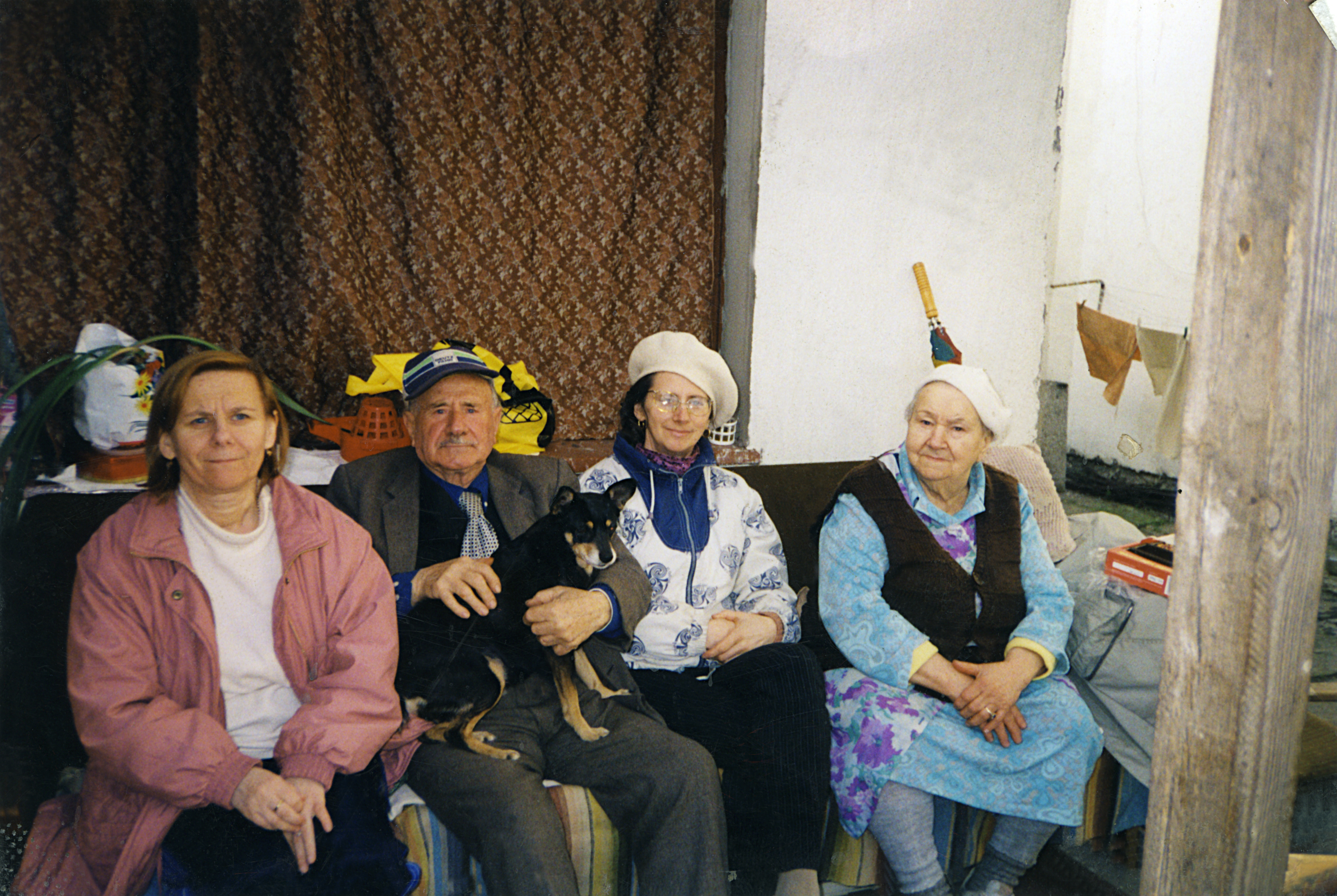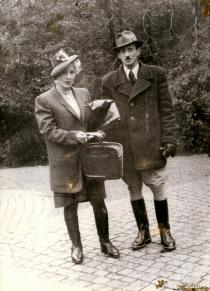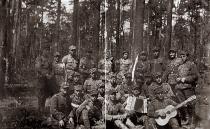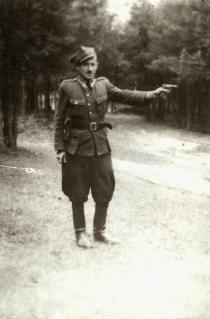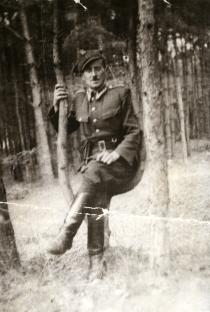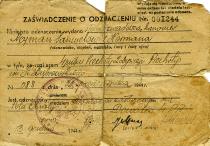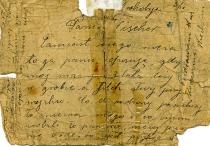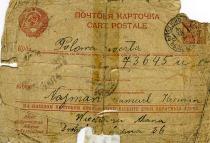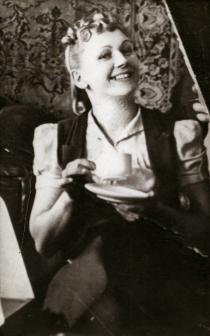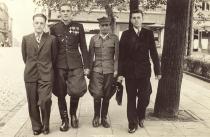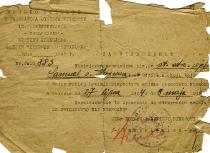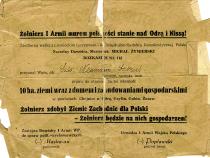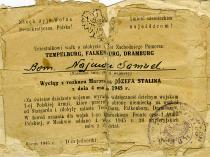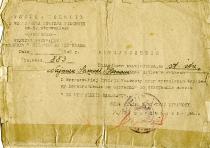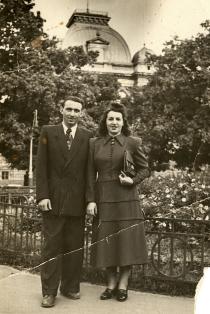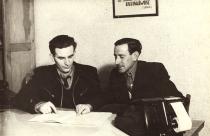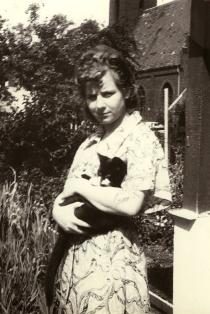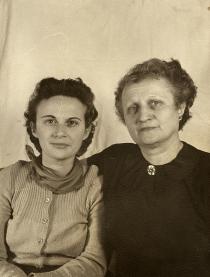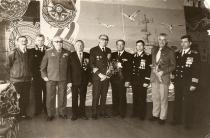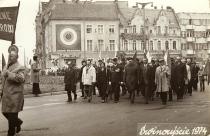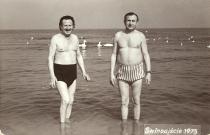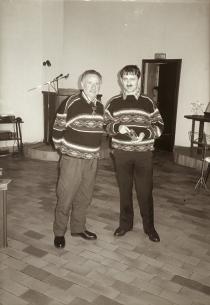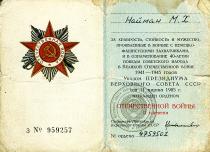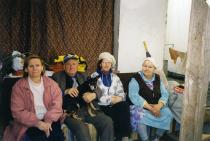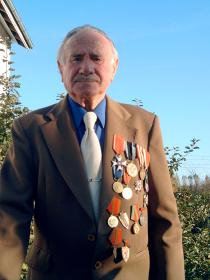On this photograph you can see me with my wife Krystyna Najman and daughters Sabina and Daisa. It was taken in late 1990s. It is probably my wife's last photograph.
We never had a church wedding, I didn't want to and she didn't either. And we lived like that for over fifty years, brought up the children, without any divorces or anything. I made sure my children got the proper education, sent one to be an officer, my daughter went into university, got married, I helped her build a house. I never told them anything about religion. I lived normally, didn't christen them, didn't do anything of the sort. That's how they lived and they married Polish guys. Others said they were Jewesses. The daughter, Daisa, lives next street from me. One neighbor says, 'Let the Jewess sweep the floor!' And my daughter says, 'What do you have against me? You bow to a Jewess, kneel before her (an allusion to the cult, widespread in Poland, of the Holy Mary), and you call me a Jewess to insult me?'
My daughter Sabina is in Israel. She'll be fifty now. Lives there with her husband, her son and daughter. He went there two years before her, found a job, everything, and then called her to come with the girls, for a month. She came for a month, he took their passports, and they stayed. He was granted the citizenship, and they were. He's a regular Pole. They can't tell there in Israel. He'll say his father's a Jew, his father-in-law is a Jew. Went to pray with me too. I went to the prayer house and they confirmed he had been going with me every Saturday for the ceremony, for two years? Knew his way around, a smart boy. Went to the rabbi, told him about all those things, and the rabbi says, 'Okay, we'll help you.' Took two years and they granted him the citizenship. His wife and children too. Went to do his army service and alright. Has a job, an apartment?
My wife used to urge me to go to the synagogue. 'What for?' I asked her, 'and who'll earn our daily bread?' Under communism, one could lose one's job or be expelled from the party for practicing religion. 'To the synagogue! You must observe this. You're a chosen one, you've got to go.' She went with me. She wasn't a Jewess but she was more observant than a Jewess would have been. She went to the synagogue and always said, 'I'm a Jewess, I have a Jewish husband.' Went with a Star of David pendant on her neck, was proud to wear it. Even my daughter liked it.
We went to a rabbi, and he says, 'From this day you're a Jewess.' That she had now converted. We went, I remember, to Szczecin, because in Walbrzych the synagogues were full of people. Such was the policy that it wasn't recommended to practice religion. You had to stick to what earned you the daily bread, and besides, religion didn't really attract me. I didn't know how to pray, so I didn't go there. And it's not enough to just imitate the gestures like a clown just because you're inside.'
Later, after I stopped working, she started to observe it and I started going to synagogue. I was free, no longer had a boss, I did what I wanted. We went to Szczecin for the high holidays, Yom Kippur, Rosh Hashanah. Then I went myself, every Saturday. But I haven't been going for a couple of years now because I'm not allowed to for health reasons. I'm the kohen, I bless the people. When I pass, they cover their clothes, and I pray. God gave me this gift but I don't use it because my health doesn't allow me to. I say, 'Glory be to God in heavens, thank You for everything, and bless,' I say, 'my family in Israel and my family here, and bless all those Poles I care for.' I put on the Tallit and read the psalm.
It's been almost three years since my wife died. She was 86. I didn't put a cross on her grave, nothing. My friends from the unit came, the Polish-Soviet friendship people, the Baptists, came and buried her. The son-in-law from Israel called and asked to read this psalm for my wife. Psalm twenty third. And now every Saturday I read it and every second day I'm at the cemetery, I go to my wife to look, to talk. 'Krysia, I have no one else to talk to.'
